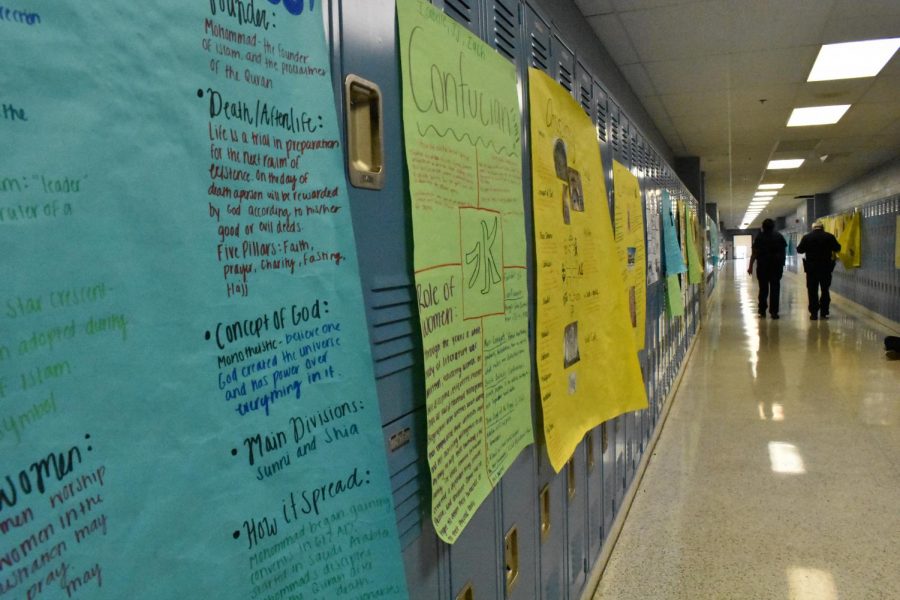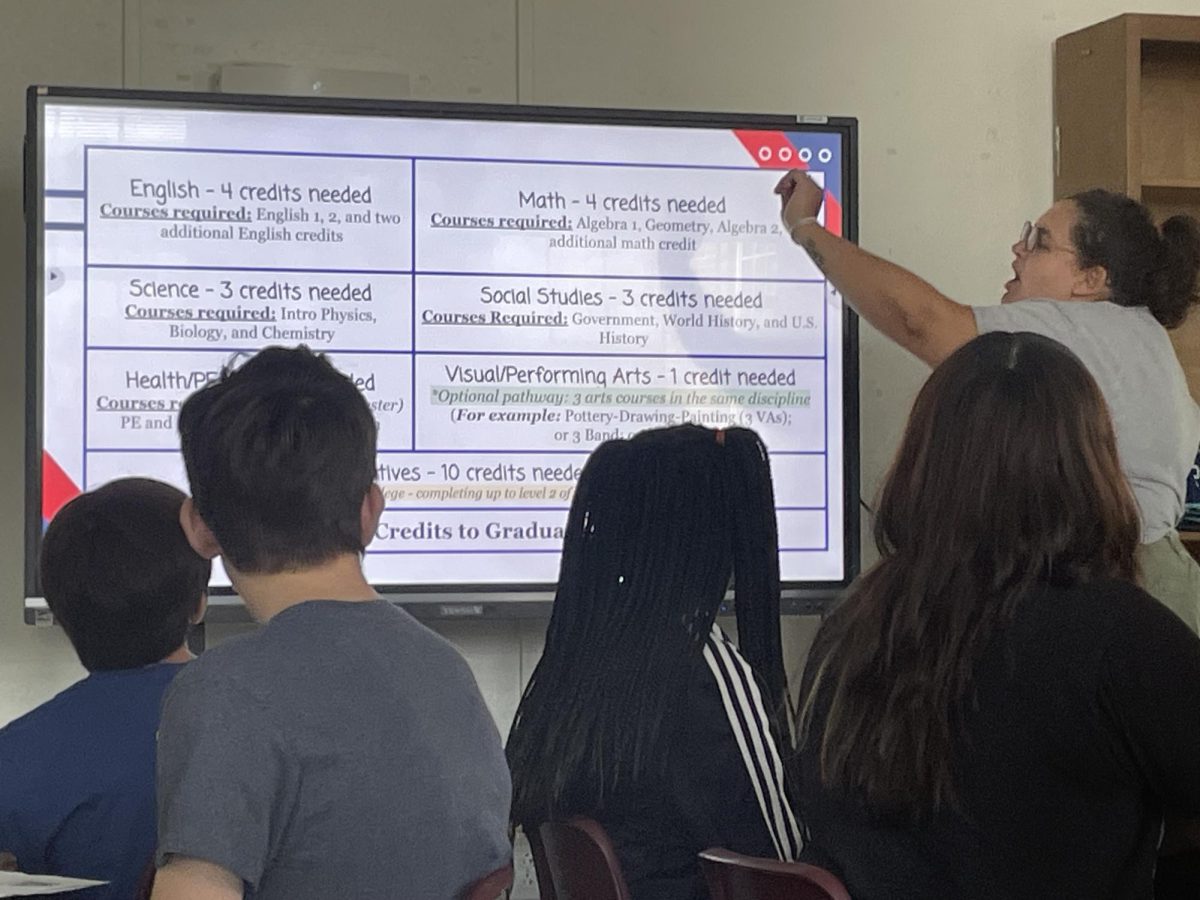Group Work for a Grade?
Posters hanging in the Social Studies hallway, are a result of Group Work.
October 16, 2018
Lafayette, along with many other schools across the nation, stress the importance of group projects for education and leadership development. Teachers assign them with the intention to help students bounce ideas off of each other and learn to work in a group setting (like most jobs and careers require). Maybe the project is something expected like a power point or poster, or something more creative like a skit. Usually the projects are pretty simple. Yet some students say they are unfair, claiming that group work will end in one or two people doing most of the work while the others lazily perform the simplest tasks or none at all. If this is the case, group projects are an inadequate representation of the students’ knowledge, and therefore shouldn’t be taken as a grade.
Most students love working in groups. It’s a great excuse to socialize and get creative juices flowing. However, some students will sigh and tremble at the announcement of group assignments. For these students, group projects mean taking on extra work. A junior, Evelyn Adams, agrees with this point, saying,”I feel like I end up doing all the work”. Even though this isn’t as common an issue in high school, it can still happen.
Some students who dislike group projects are more neutral. They claim that group work can be very helpful to learning the subject at hand, and that working with their peers gets them more excited and determined to do good on the project. However, they don’t like the idea of the whole group getting one lumped together grade. Each person’s part in the project is different, so in general, the project could be hard to grade.
But even more importantly, an overall grade for a whole group can’t possibly represent each individual student’s understanding of the subject. Maybe one student just did the art and design for the project, but didn’t learn all of the information. Or maybe a student is just confused all the way throughout. This is reason enough as to why group projects shouldn’t be counted as a grade. Instead, they should be utilized to teach the students how to present information and cooperate in a group. Not all learning experiences have to be turned into grades. In fact, if the students aren’t stressing about their grades the whole time, they might spend more time, energy, and brainpower on their projects.
Overall, most people can agree working in groups has the potential to be very beneficial. The dislike lies in how these projects are graded and executed. In a perfect world, every student in a group will give their full effort and will be able to learn the material easily and quickly. However this is not a perfect world, and some students can fall behind or are lazy about their participation in the project. These problems could possibly be solved by treating group work differently, as a learning opportunity instead of a measure of intelligence and ability.





